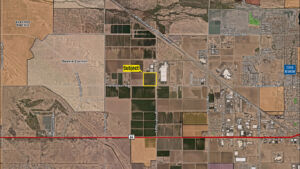Home values are growing fastest in areas with the highest share of kids, reflecting the impact millennial house hunters are making on family-friendly neighborhoods with a shortage of homes for sale. A record number of millennials will reach key age milestones for home buyers over the next two years, which may accelerate price gains even further in neighborhoods with kids.
Stats for the Phoenix metro neighborhoods with kids:
• The 85297 in Gilbert has the highest share of kids in the metro at 36.4%. Home values in that ZIP code grew 34.3% in 2021.
• The 85351 ZIP code in Sun City has the smallest share of kids at 0.4%. Home values in that ZIP grew 29.5% last year.
• Across the metro, home values grew 31.8% in 2021, and the year ended with 9.5% fewer homes on the market than in December 2020.
READ ALSO: Residential real estate trends to watch in 2022
The top 10% of ZIP codes with the largest share of kids in each county analyzed saw an average of 21.3% growth from October 2020 to October 2021, compared to 17.6% in ZIP codes with the smallest share of kids. That trend started in 2013, which, not coincidentally, was the year the oldest millennials turned 32, the age when many new parents buy their first homes. That’s the median age of first-time home buyers and one year older than the median age of fathers with newborns.
“As millennials go, so goes the housing market, and we are seeing now, as millennials age, that they are looking for homes that fit the needs of growing families,” said Zillow economist Nicole Bachaud. “Millennial demand has helped push up home prices in areas with the most children. Competition for homes in these family-friendly areas should intensify in the coming years as more millennials reach the key age of 32, adding to the affordability squeeze.”
Zillow analyzed 421 U.S. counties, representing 71% of the country’s population. ZIP codes with more residents under 18 years old are associated with higher home value growth in nearly two-thirds of the counties studied. Many of the counties where this relationship does not hold true are vacation destinations, where part-time residents have unconventional housing demands. Home value growth in these family-friendly areas began to outpace nearby ZIP codes in 2013, and the correlation between kids and home value growth has been nearly perfect for each year since 2017.
That first wave of early-30s millennials had the benefit of discounted home prices as a result of the Great Recession; home values in these family-friendly ZIP codes were hit particularly hard between 2008 and 2011, in the midst of the nationwide housing crash. Today’s first-time home buyers are encountering a much different market, especially as home price growth has reached record highs during the pandemic.
The snowball of millennials reaching peak age for first-time home buyers has grown during the past nine years, and is about to turn into an avalanche. Nearly 200,000 more Americans will turn 32 this year than did so in 2021 ― the biggest jump since the transition from Generation X to millennials in 2013 — and even more will do so in 2023. This demographic reality should fuel even faster price growth in family-friendly ZIP codes over the next two years, making saving for a down payment even more challenging for first-time buyers.
This effect is strongest in counties that encompass the cities of Norfolk, Virginia; Washington, D.C.; Portland, Oregon; Austin, Texas; and Seattle. Counties where this trend does not hold true include those encompassing Galveston, Texas; Santa Barbara, California; and Ocean City, New Jersey.



